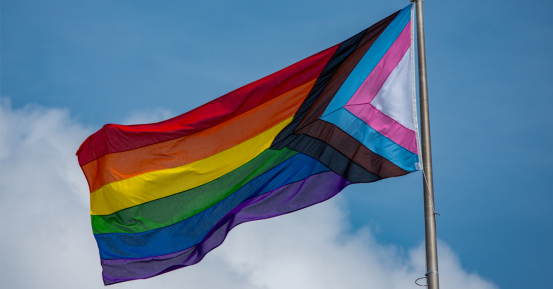Published Date
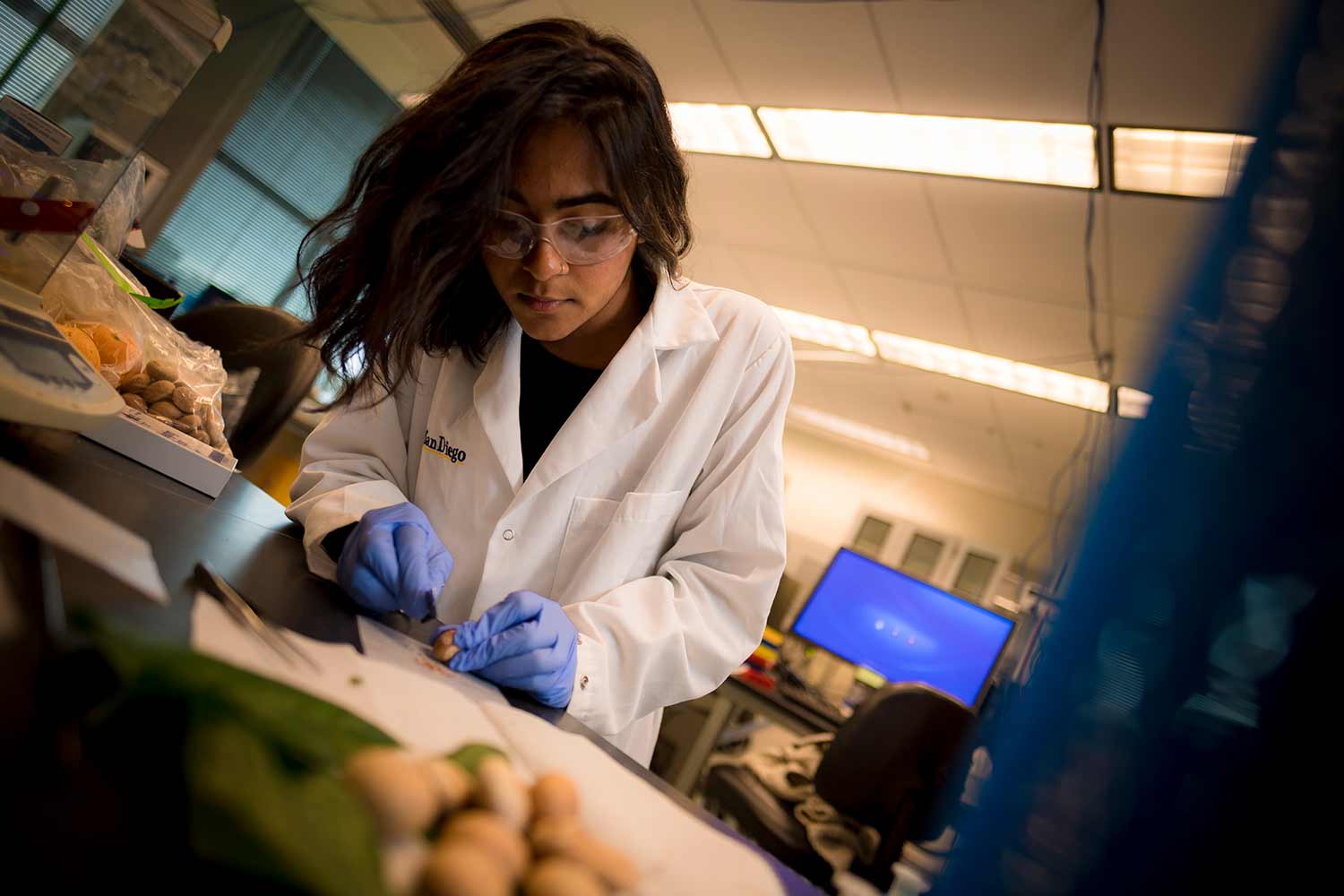
Photos by Erik Jepsen/UC San Diego Publications
UC San Diego Undergraduate Synthesizes Visual Arts, Community Engagement and Scientific Research for Health Activism
Multidisciplinary issues need multidisciplinary solutions. That’s biology major and visual arts minor Anika Ullah’s mantra. Ullah believes that when put together, visual media, science and community engagement can serve as powerful tools for gaining insight into current health-related issues, shaping scientific study design and increasing public agency—and she’s dedicated her undergraduate career to three local, binational and global projects that accomplish that aim.
Intersectional Health Project San Diego
After interning for five summers at Stanford University during high school and college developing a low-cost therapeutic platform for inflammatory bowel disease (IBD), Ullah became committed to conducting cost-effective biodesign and biomedical research that aims to improve the health of populations in low-resource settings.
“When I moved from the Bay Area to attend UC San Diego, I quickly realized the breadth and complexity of health-related social issues impacting communities near the U.S.-Mexico border,” said Ullah. The realization motivated her to found the Intersectional Health Project San Diego in December 2016, a nonprofit organization that has already led to many community-engaged health projects.
“We’re working with the San Diego Housing Commission and local council members to build a safe school zone for kids in Barrio Logan, where there’s a Hepatitis A outbreak,” said Ullah. “Barrio Logan also has high asthma rates due to industrial pollution, and many of the residents can’t afford consistent access to electricity, so we put together a team of interdisciplinary students to create a reusable emergency energy source that will power respiratory medical devices during power shutoffs.”
Citrus fruits as low-cost biosensors
In keeping with her passion for social justice, Ullah heard about a study done by San Diego State University on air quality in partnership with the Environmental Protection Agency (EPA) when participating in the UC San Diego Center on Global Justice BLUM Summer Field Internship. “I attended their public exhibition and learned that San Ysidro, a border town situated between San Diego and Tijuana, Mexico, is the most heavily trafficked port of entry in the Western hemisphere. Communities that live near the area experience excessive air pollution from vehicles idling at the border, and face significantly higher rates of respiratory disease.”
Moved by what she learned, Ullah decided to produce a documentary film highlighting community experiences with border-generated pollution and health in San Ysidro.
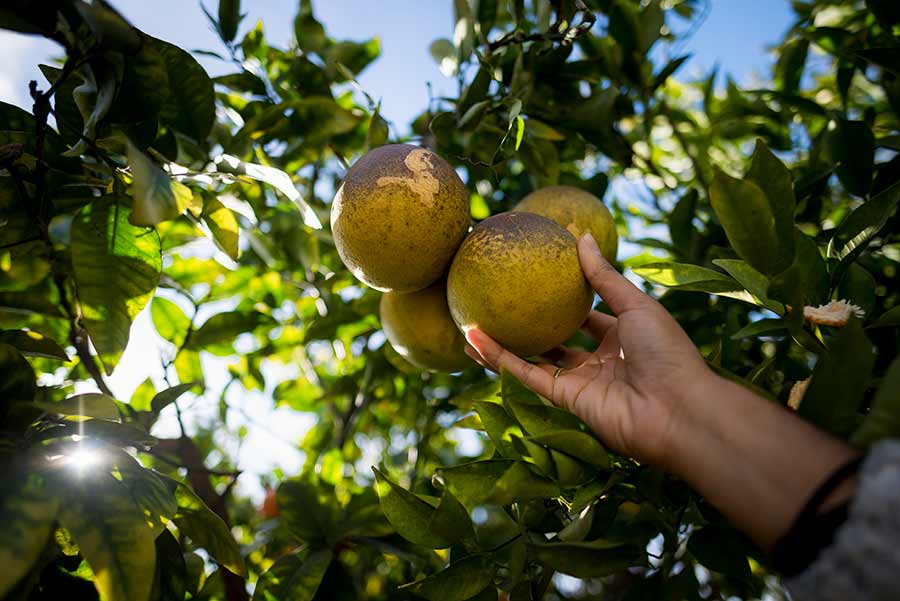
Polluted grapefruit in Guillermo Cornejo's backyard in San Ysidro, California
“We have to find a way to mitigate this,” said community member Guillermo Cornejo. “Man has overcome many challenges—this is not a great challenge.”
Ullah’s work on the documentary ended up leading to yet another project.
“Guillermo mentioned to me that his backyard citrus fruit trees collected black spots only where exposed to air,” said Ullah. “I brought his polluted citrus fruit to the community film screening event for the documentary I produced, and many community members were intrigued by the phenomenon. With strong support from my mentors at the UC San Diego Center for Microbiome Innovation and the community, we decided to explore the potential of citrus fruit as low-cost and publicly accessible biosensors for air pollutants.”
The study will be part of the Global FoodOmics Project, which is closely affiliated with the American Gut Project also at UC San Diego. Global FoodOmics is a multi-disciplinary effort initiated by postdoctoral scholar Julia Gauglitz to better understand the small molecules and microbes that comprise the foods that we eat and drink. Gauglitz, a strong proponent of mentoring undergraduates in research, is leading Ullah in her quest to learn what makes the polluted fruits from San Ysidro different from local, store-bought varieties, and how they might contribute to local air pollution mitigation efforts.
“We are working to create a rich public dataset that can be used cross-disciplinarily,” said Gauglitz. “It’s exciting to analyze these unique samples and use the data to address a local citizen-inspired question. So far we’re seeing some interesting differences.”
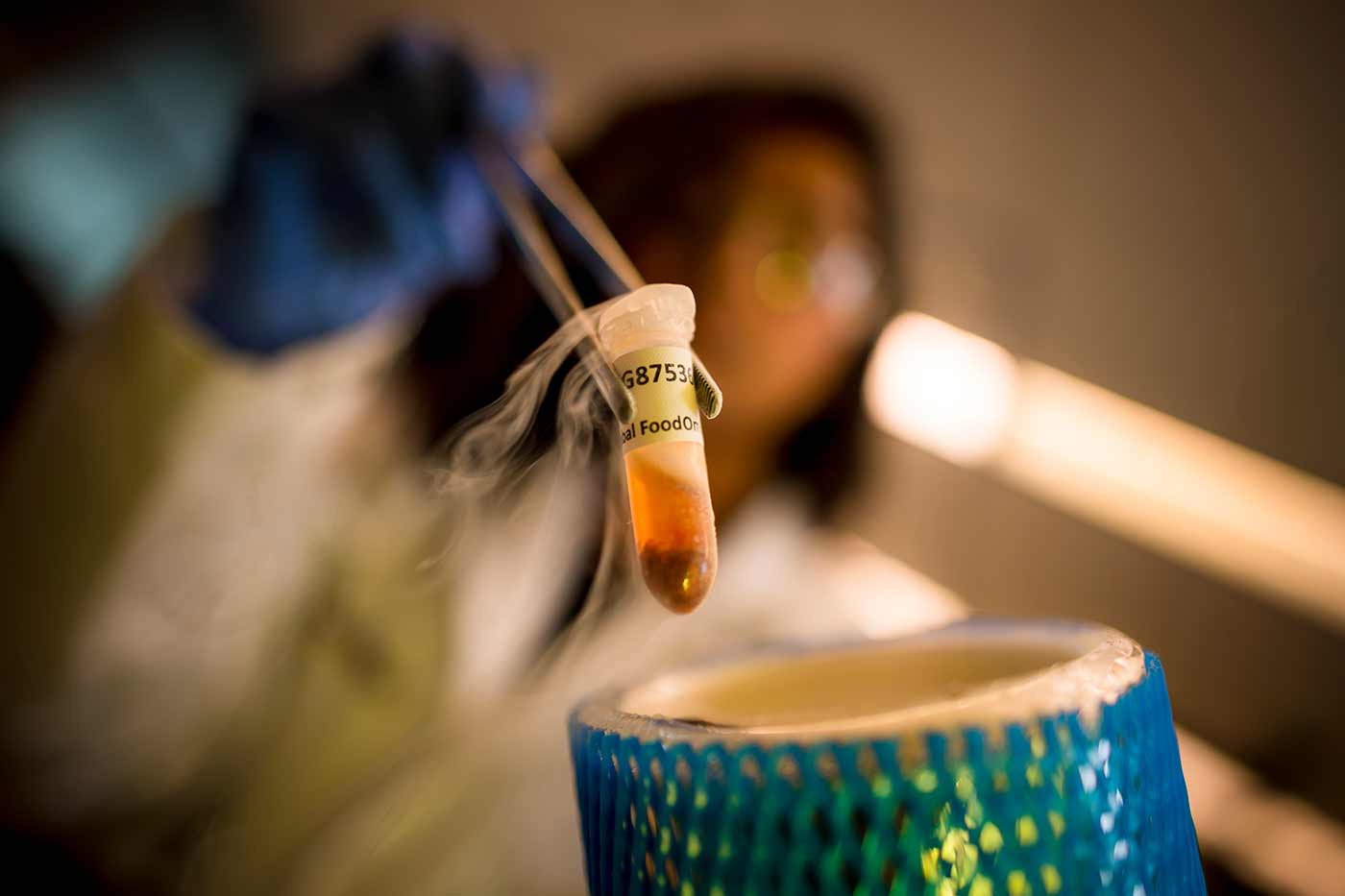
Prepared betel nut samples for the Global FoodOmics Project
Betel Nut Project
“The third project came about after realizing that my extended family consumes the betel nut without knowledge of its carcinogenic effects,” said Ullah. “I discovered that Taiwan has the highest rate of betel nut-linked oral cancer and China the lowest; subsequent discussions with Chinese and Taiwanese researchers inspired a new project that searches for alternative betel nut preparation strategies that can reduce the risk of oral cancer while keeping with cultural practice.”
The Betel Nut Project will also feed data to Global FoodOmics.
Ullah is currently a semifinalist for the Fulbright U.S Student Research Fellowship, which will enable her to travel to Taiwan and China after graduation to continue her research on the link between cultural practices of betel nut preparation and oral cancer in collaboration with the Taiwanese vice president’s research team.
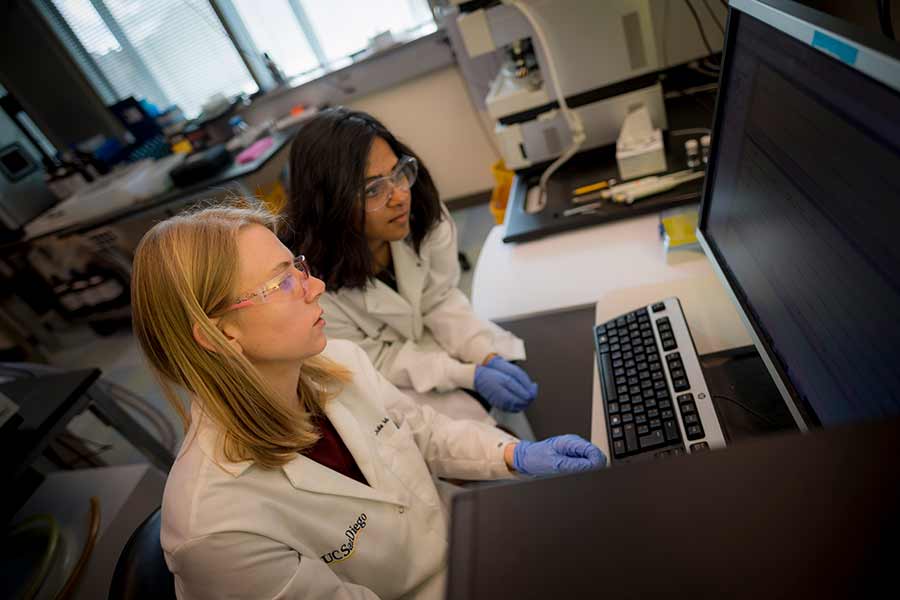
Gauglitz and Ullah analyze mass spectrometry data
Ullah was recognized in December by the UC San Diego Division of Biological Sciences as a Gabriele Wienhausen Endowed Biological Sciences Scholar for exceptional science involvement, community engagement and leadership, and spoke as one of 12 undergraduate plenary speakers worldwide for Harvard's National Collegiate Research Conference, the largest undergraduate research conference, which took place January 18, 2018. Past keynote speakers include Nobel laureates and the executive editor of the New York Times. Ullah spoke about the above three local, binational and global projects she has been leading as case studies for synthesizing scientific research, community engagement and visual media for health activism. On February 26, 2018, Ullah will travel to the UC Undergraduate Research Ambassador Showcase in Sacramento to share her research with alumni, legislators and other involved Californians.
In addition to these projects, Ullah is completing an undergraduate honors thesis in computational microbiology, women’s health and visual arts. Her thesis consists of a clinical study (in partnership with the UC San Diego Student Health Clinic) that investigates the impact of antibiotics on the urinary microbiome and metabolome during urinary tract infection (UTI) recovery. The project includes an art installation that uses visualizations of clinical data.
Ullah is mentored by UC San Diego faculty members Rob Knight, Pieter Dorrestein, Linda Brubaker and Fonna Forman.
Share This:
You May Also Like
Stay in the Know
Keep up with all the latest from UC San Diego. Subscribe to the newsletter today.
